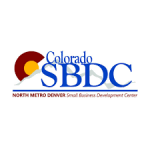By Jon Jaggers, SBDC Lead Consultant
We have experienced and continue to experience the most trying times in one hundred years. The Covid-19 pandemic has challenged each of us financially, mentally, and socially in all aspects of our lives. It is only now, with the vaccine becoming available and new leadership in our federal government, that we see a true glimmer of hope.
Throughout the pandemic, those who have demonstrated leadership have possessed similar qualities, traits that I call the Five C’s of Leadership. They are courage, competence, communication, commitment, and collaboration. These Five C’s have always been important aspects of leadership, and something that all leaders have exhibited, whether or not they were aware of it. Harvard Business Review even issued a review of the most important leadership traits and my Five C’s featured prominently among theirs. But I think that what is most important and meaningful to small businesses in the North Metro Denver area is not necessarily to focus on the big shots, but instead to reflect on their own leadership during the pandemic, large and small, and to look left and right at their neighbors to see the many examples where our small business leaders have helped lead their businesses and the community through this challenging time.
Let’s take a look at each of the Five C’s of Leadership in turn to see how the last year has brought out these essential leadership qualities in countless examples both big and small, in our small business community.
Courage
(cour·age) (kûr′ ĭj, kŭr′-) n. The state or quality of mind or spirit that enables one to face danger, fear, or vicissitudes with self-possession, confidence, and resolution; bravery.
[Middle English corage, from Old French, from Vulgar Latin *corāticum, from Latin cor, heart.]
Having the strength and fortitude to operate in a different manner when faced with insurmountable challenges; possessing the determination to pivot quickly. The pandemic has forced leaders to seek out radical changes in the business operating mode, including relying on e-commerce to drive sales and interaction with customers. It takes tremendous courage to upend a proven method of business in response to a challenge like a pandemic. I’m sure you have had to change something about how your business operates, and I’m sure it created some fear and uncertainty for you. You should reflect on the courage that you and your team demonstrated and be proud of your pivots!
Competence
(com·pe·tence) (kŏm′ pĭ-təns) n. A. The ability to do something well or efficiently. B. A range of skill or ability: a task beyond his competence. C. A specific ability or skill: a surprising competence in dealing with animals.
Demonstrating the technical savvy to understand and optimize business processes. Ability to utilize tracking tools to measure performance and to adjust to change. Effective leaders have re-educated themselves and brought their new knowledge and competence into their businesses to adapt to the time. For example, many small businesses initiated software apps that streamline processes and create a distinct business advantage. Application of process improvement tools, such as lean, creates a streamlined operation with elimination of waste. These new competencies paves the way for your business future, and they remind us that we will need to continue our education if we are to be prepared for future challenges.
Communication
(com·mu·ni·ca·tion) (kə-myoo′nĭ-kā′shən)
n.
A. The exchange of thoughts, messages, or information, as by speech, signals, writing, or behavior.
B. Interpersonal rapport.
Having the fortitude to deliver a consistent message concerning the organization’s status and challenges. Never has the need for transparency been more demanding. When the whole state is feeling such confusion (the whole world, even!) and millions of competing, contradicting messages clamor for your team’s attention and undermine their confidence, it takes a strong leader to communicate with clarity and compassion, to give the team the information and the confidence that there is a plan, we are doing our best, you are part of the solution, and this too shall pass.
Commitment
(com·mit·ment) (kə-mĭt′mənt)
n.
A. A pledge or obligation, as to follow a certain course of action: a public official’s commitment to uphold the Constitution.
B. Something pledged, especially an engagement by contract involving obligation.
C. The state of being emotionally or intellectually devoted, as to a belief, a course of action, or another person: a profound commitment to the family.
Possessing the drive and dedication to focus on continuously improving all aspects of the operation. Sadly, many businesses were unable to whether the storm of this pandemic, and for a variety of reasons many of which were out of their control. One thing that is in your control as a leader is your level of commitment to your business. You can always give more, care more, and show up moreyou’re your business and your team. The best leaders continue to demonstrate incredible levels of commitment to the survival and adaptation of their businesses and their teams.
Collaboration
(col·lab·o·ra·tion) (kə-lăb′ə-rāt′)
n.
Working together, especially in a joint intellectual effort.
The ability to work with and through others while maintaining individual dignity and respect. Employee input and empowerment is a key to survival and growth, and business collaboration is a key to community survival and growth. We have seen during this pandemic countless examples of community partners collaborating to support small businesses, and small businesses collaborating to support their communities. Thank you for leading your business, and for being an instrumental part of Colorado’s recovery from Covid-19. Lead on!

About the Author:
Jonathan Jaggers, MBA, Lead/Manufacturing Consultant
Jon is a seasoned operations consultant, specializing in optimizing organizational capabilities through implementing process systems, application of lean techniques, and developing strategic plans. He has twenty plus years of operational management experience with several Fortune 500 companies. He has been a Lead Consultant for SBDC for the last five years.
Jon utilizes a methodical approach in developing organizational capabilities through strategic planning, tactical initiatives, and operational accountability. He is a certified in lean operational techniques, that when applied drive process excellence while delivering superb customer value. He assists clients in applying metrics to measure and improve key performance indicators.
His focus is on small to medium size company’s strategic and tactical plan development and execution. He has had the opportunity over the last five years to consult with numerous companies that have financially grown and prospered.
Jon has a BA in Business Administration and an MBA in Organizational Leadership from Ashford University. He was awarded State SBDC Consultant of the Year in 2015 for his contribution to his clients for economic development.










